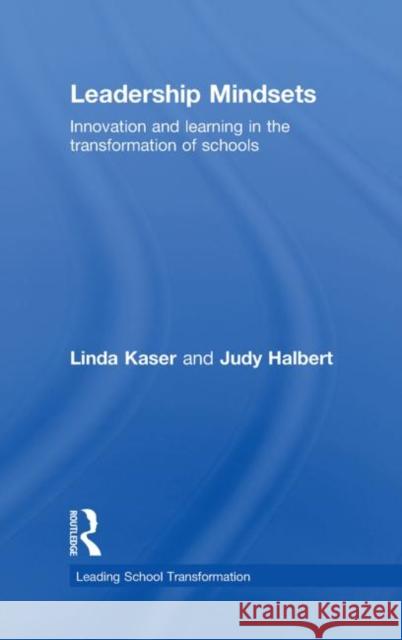Leadership Mindsets: Innovation and Learning in the Transformation of Schools » książka
Leadership Mindsets: Innovation and Learning in the Transformation of Schools
ISBN-13: 9780415476935 / Angielski / Twarda / 2009 / 184 str.
Leadership Mindsets: Innovation and Learning in the Transformation of Schools
ISBN-13: 9780415476935 / Angielski / Twarda / 2009 / 184 str.
(netto: 559,74 VAT: 5%)
Najniższa cena z 30 dni: 579,30
ok. 22 dni roboczych.
Darmowa dostawa!
The evidence is clear - school leaders make a difference to the learning of the pupils they serve. And yet, not all leaders have the same degree of impact. What are the factors that make the difference to student learning? Why are some leaders able to raise student achievement in schools in the most challenging circumstances whilst other leaders struggle to simply maintain the status quo? Drawing from international case study research over many years, from the experience of hundreds of school leaders serving widely diverse communities, Judy Halbert and Linda Kaser argue that there are six distinct mindsets that characterize the way successful, learning-oriented leaders operate and make sense of their professional world. These leaders are:
- motivated by intense moral purpose
- knowledgeable about current models of learning
- consistently inquiry-oriented
- able to build trusting relationships
- evidence-informed
- able to move to wise action.
The evidence is clear - school leaders make a difference to the learning of the pupils they serve. And yet, not all leaders have the same degree of impact. What are the factors that make the difference? Why are some leaders able to make powerful gains in relatively challenging circumstances while others struggle simply to maintain the status quo?
Drawing from case study research over many years from hundreds of school leaders serving widely diverse communities, Judy Halbert and Linda Kaser have observed that there are six distinct mindsets that characterize the way successful learning oriented leaders make sense of their professional world. These leaders are:
- motivated by intense moral purpose
- knowledgeable about current models of learning
- consistently inquiry-oriented
- build trusting relationships
- evidence informed
- move to wise action
This book describes a new way of thinking about school leadership and provides practical examples of the six mindsets in action. How does intense moral purpose drive leadership action? What does it look like when school leaders are genuinely inquiry oriented? What forms of evidence do leaders find most useful and how are they using this evidence to move learning forward? How does a focus on competence in core responsibilities contribute to improved relationships and deeper learning? How does a leader’s deep understanding of learning lead to greater intellectual companionship and thoughtful supervisory practice? How does action-oriented design help build capacity in others? Finally, how do leaders create and sustain networks of inquiry, learning and support for themselves and for their schools?
These questions and others explored in this book are intended to provide a thinking guide for new leaders determined and motivated to create quality and equality for learners in the schools they serve.











